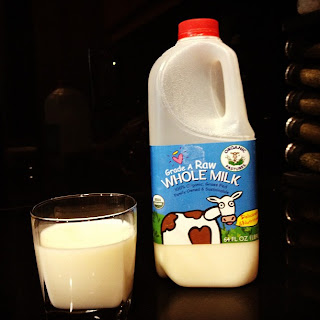Questions to ask a Dairy Farmer
Sustainable Table is an extraordinary website packed with important information! You can find information on issues like animal welfare, additives, pollution, CSA’s, farmer’s markets, environment, factory farms…the list goes on. I encourage you to go to their website and take some time to read through the articles. I contacted Sustainable Table and asked for permission to use their information on my blog site because I believe it is extremely relevant to the purpose of my blog. I took each list word for word from their website so all Kudo’s go to SustainableTable.org.
The post prior to this one was a question list to ask beef farmers.
As you continue reading, you will notice these questions were generated specifically for a dairy farmer. The list gives you a series of questions to ask and what type of answers you should be getting in response.
Are your cows raised on pasture? If not, how are they raised?
When animals are raised on pasture or in fields, they graze outdoors. Cows are ruminant mammals with stomachs designed to digest grasses, so pastures are their ideal feeding grounds. You want the farmer to tell you that the cow grazed out on fields and ate a vegetarian diet. Of course, cows are often brought in to be milked, and in the winter may spend time sheltered in a barn, but you want the animals to have access to pasture for several hours a day during spring, summer and fall.
Are your cows fed anything else besides grass, hay and grass silage?
You want to know if the farmer fed his cows any supplements, byproducts or additional types of feed. On factory farms, cows may be fed animal byproducts, rotten and outdated food, poultry manure and feathers, and even cement dust.
The best answer to this question is that the cows ate only grass, hay and silage. Beyond that, you want to be sure that the cows had a 100% vegetarian diet. Many farmers, including some sustainable farmers, supplement their cows’ diet with corn. While this still counts as vegetarian feed, it is important to remember that cows are not meant to eat corn, and a high amount of corn in the animal’s diet can make it sick.
Are your cows given rBGH or any type of synthetic hormone?
An estimated 15% of all dairy cows in the United States are injected with genetically engineered recombinant bovine growth hormone (rBGH). This forces cows to produce more milk, often leading to painful udder infections that cause pus and blood to mix in with the milk. Because these animals become more prone to sickness, they are also given increased levels of antibiotics and other drugs, and residues of these
medications can be found in their milk. Most countries do not allow the use of rBGH because of concerns over the safety of the product for both consumers and animals. You should not buy milk, cheese, ice cream, yogurt or other dairy products from cows given rBGH.
Are your cows ever given antibiotics?
Some consumers want to know the animals were never given antibiotics, even to treat illness. Other consumers are okay with the therapeutic use of antibiotics, meaning that the animals are treated with antibiotics only if they get sick. You need to decide which is best for you. Any animal fed a low dose of antibiotics on a continual basis, either to promote growth or to ward off possible disease, is an animal
that was raised unsustainably on a factory farm. Their products should be avoided.
How long do dairy cows stay in your herd?
Sustainable dairy operations may keep cows for 10 to 15 years. Operations that use rBGH and other supplements, which cause health problems, often need to replace their cows every five to seven years. Because replacing cows more frequently is expensive, these dairy farmers will often try to market their old and/or sick dairy cows as meat.
NOTE: Sustainable farmers are very open about how they raise their animals and grow their fruits and vegetables. If you purchase products from a company advertising that it distributes sustainably raised foods from family farmers and ranchers, ask for their written standards for their products. If they aren’t willing to share these with you, you may want to think twice about buying from them.
———————————————————————————————————————————
Isn’t it enlightening? Finally some easy general questions and answers to understand without the confusion of everything else in between. Even if you aren’t buying direct from a farmer or at the farmers market use these questions to ask yourself when you make your next purchase at the grocery store.
Look forward to tomorrows post about Questions to ask a Hog Farmer.
Until next time,
Loriel - Healthy Roots, Happy Soul
Resources- www.sustainabletable.org

